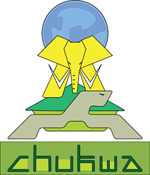Welcome to Apache Chukwa!
About Apache Chukwa
Apache Chukwa is an open source data collection system for monitoring large distributed systems. Apache Chukwa is built on top of the Hadoop Distributed File System (HDFS) and Map/Reduce framework and inherits Hadoop’s scalability and robustness. Apache Chukwa also includes a flexible and powerful toolkit for displaying, monitoring and analyzing results to make the best use of the collected data.
News
16 July 2016: Release 0.8 is available. This is a security bugfix release. This release updates Hadoop, HBase, and Solr dependencies and improve Java 8 support. See the Apache Chukwa 0.8.0 Release Notes for details. Alternatively, you can look at the Jira issue log for all releases.
21 December 2015: Release 0.7 is available. This release features log indexing and searching via Solr, improved HBase storage and new dashbarod design. This release is designed for monitoring Hadoop 2.x. See the Apache Chukwa 0.7.0 Release Notes for details. Alternatively, you can look at the Jira issue log for all releases.
22 November 2014: Release 0.6 is available. This is our first top level project release. This release is designed for monitoring Hadoop 1.x. See the Apache Chukwa 0.6.0 Release Notes for details. Alternatively, you can look at the Jira issue log for all releases.
26 January 2012: Release 0.5 is available. This is the latest release, incorporating many bug fixes, improved documentation, and a variety of new features, including HBase support.
26 April 2010: Release 0.4 ix available. This is our second release, incorporating many bug fixes, improved documentation, and a variety of new features, including support for processing UDP messages. See the Apache Chukwa 0.4.0 Release Notes for details. Alternatively, you can look at the Jira issue log for all releases.
Getting Started
Releases are available on the release page. For documentation, check here and on the Wiki.
Getting Involved
Apache Chukwa is an open source volunteer project under the Apache Software Foundation. We encourage you to learn about the project and contribute your expertise. Here are some starter links:
- Give us feedback: What can we do better?
- Join the mailing list: Meet the community.


